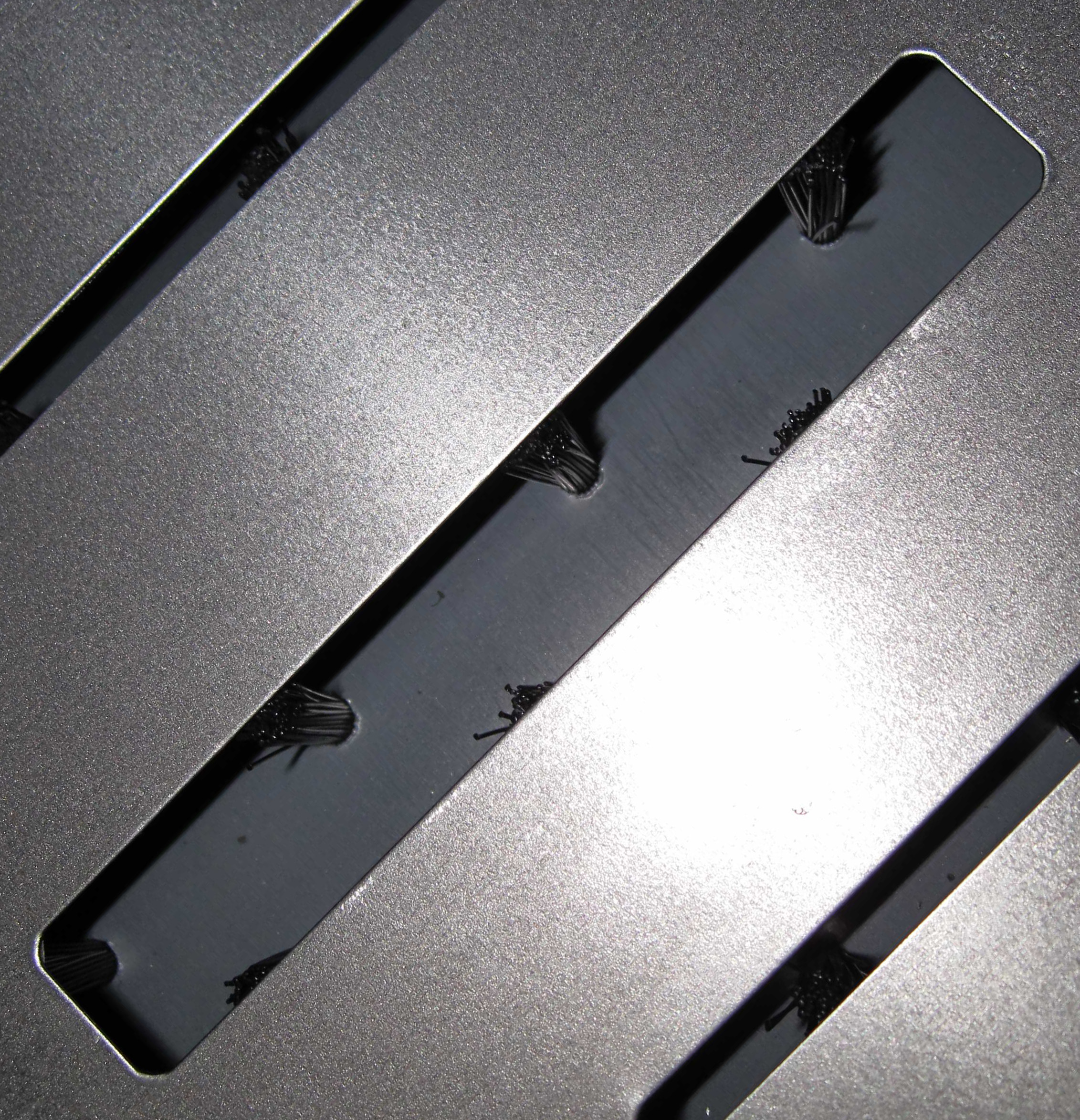Solutions Lab
Find the solution to your problem and if you can not find it… contact us!
-
Nibbling signs
What is the issue?
Quite often to perform a simple and common nibbling with a rectangular or square tools, might give aesthetical problems. These problems are clearer on certain types of materials or applications.
Tell us what went wrong
Q: why do we obtain small marks on the sheared sheet edge?
A: These marks are a consequence of nibbling. These deformations show the “separation” between two hits and might become a big problem when the sheet metal must be visible, without finishing operations. This gets worse when we work on materials which highlight these signs.
NIBBLING SIGNS
The final result might not be acceptable when the part shows nibbling marks.
Don’t worry, MATRIX is here to share its experience with you.
“We have the solution to obtain shearing without marks.” – MATRIXHow to limit the problem?
The answer is easy: with a mix of standard shapes it is possible to limit drastically these signs, up to eliminate them.
Is this an expensive solution?
Absolutely no! No additional costs more than a standard set of tools. No machine updating is needed. All stays the same, with costs limitation and better quality of the final product.
Shearing with nibbling marks
Shearing without nibbling marks
-
Galling Effect
What is the issue?
Despite the common thinking punching on aluminum requires special attention, if is a cluster tool the attention needs to be multiplied.
Tell us what went wrong
Q: why am I finding littles slugs on the sheet?
A: check the penetration of the tool into the die, often a short stroke ends up in stacking of the slug. This increases the tonnage and can create slug pull. A correct tool penetration should be 2,5-3 mm into the die.Q: why are the inserts breaking prematurely?
A: the dust particles removed from the punch create what is called a “galling effect”. The particles attach to the punch surface with a process called “cold welding”. Punch thickness increases and the die tolerance is no longer correct, punch gets stuck, machines axis move and the crack happens!
CLUSTER ON GALLING MATERIALS
Soft is not always good, hardness is not always the issue, some soft materials can be more problematic than hard ones.
No worries MATRIX is here to share their experience with you.
“Cleaning and proper maintenance is a critical aspect, needs to be done regularly.” – MATRIXHow to prevent the problems
First aspect is to be aware on what can happen processing specific materials and how to “prevent” the problems. Coating is not enough: although the punch is properly Cleaning and proper maintenance is a critical aspect, needs to be done regularly. This alone will prevent most of the issues.
Proper die penetration
As said before another critical aspect is the die penetration. Slug needs to pass the threshold of 2,5-3mm. Especially on ant slug dies this is fundamental to properly use the advantages of the slug prevention die technology.
Contact us for each request
Slug stacking
Aluminium dust traces on the sripper plate
Stacked slugs removed from the bottom of the die




